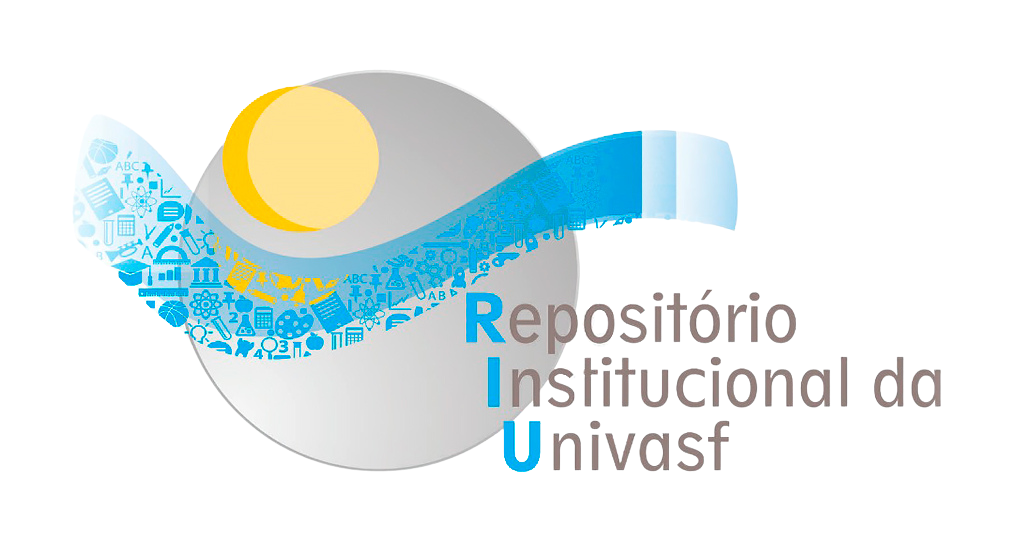
Repositório Institucional da UNIVASF (RIU)
O repositório preserva e provê acesso fácil e aberto a todos os tipos de objetos digitais, incluindo: textos, imagens, vídeos e conjuntos de dados
Comunidades no DSpace
Selecione uma comunidade para navegar por suas coleções
Submissões Recentes
Feiras agroecológicas e orgânicas em Juazeiro-Petrolina: um patrimônio sociocultural para uma alimentação saudável
(2024-03-07) Coelho, Ana Carla Mendes; Silva, Ana Paula Lopes da; Almeida, Raniere de Carvalho; Pacheco, Clecia Simone Gonçalves Rosa; Ramos, Jorge Luis Cavalcanti; Oliveira, Lucia Marisy Souza Ribeiro De; https://orcid.org/0000-0002-4022-5568; https://orcid.org/0000-0002-3791-0572; https://orcid.org/0000-0002-4588-575X; https://orcid.org/0000-0002-7621-0536; https://orcid.org/0000-0002-6099-6861; https://orcid.org/0000-0002-0588-1797
Núcleo Tecnológico de Informação EaD Univasf: contribuições da biblioteca universitária para o desenvolvimento territorial
(2023) Silva, Ana Paula Lopes da; Ramos, Jorge Luis Cavalcanti; Duarte, Francisco Ricardo
Desenvolvimento de um módulo virtual de integração entre biblioteca e EaD: uma proposta para o Sistema de Bibliotecas da Univasf
(2023-12-22) Silva, Ana Paula Lopes da; Ramos, Jorge Luis Cavalcanti; Duarte, Francisco Ricardo
This study is part of a Doctoral research and aims to develop an integration module between the library and the virtual environment of EaD Univasf. A gap was identified in the provision of informational resources and services to this public, thus, an attempt is made to improve integration and communication, gathering resources that contribute to learning and training in EaD. Initiatives related to the proposal will be explored; applied a questionnaire with EaD students and use of agile SCRUM methodology for tool development. The study is expected to provide an environment that integrates library functionalities to the EaD platform, supporting students in this modality.
Ambiente virtual de integração entre a educação a distância e as bibliotecas universitárias das instituições participantes da Universidade Aberta do Brasil
(2024-06-28) Silva, Ana Paula Lopes da; Ramos, Jorge Luis Cavalcanti; Duarte, Francisco Ricardo; Rodrigues, Kátia de Oliveira; https://orcid.org/0000-0002-3791-0572; https://orcid.org/0000-0002-6099-6861; https://orcid.org/0000-0002-9102-8273; https://orcid.org/0000-0002-4909-8745; http://lattes.cnpq.br/3373141381698319; http://lattes.cnpq.br/1438322656914569; http://lattes.cnpq.br/1491869394270803; http://lattes.cnpq.br/2274233937243548
The development of Distance Education in Higher Education Institutions requires a series of adaptations to this educational modality, which also affects university libraries as information support units for teaching, research and extension. Distance learning becomes the target audience of these units, requiring products and services, especially technological ones, to support the teaching-learning process. Objective: To identify actions aimed at providing environments/platforms for distance learning services in libraries of institutions that are part of the Open University of Brazil. Methodology: This is a descriptive study with a qualitative and quantitative approach. The institutions were consulted through the SisUAB system, and data were collected by applying an online questionnaire with library managers of these institutions. Results: It can be seen that out of the 76 responding institutions, only three identified integration actions through an environment/platform for distance learning, and the service to this public is mostly centered on making virtual libraries and databases available. What stands out is the professionals' view that there is no need for differentiated services for distance and face-to-face audiences, with the maxim that all services are available to all audiences. Conclusion: The initiatives are few in relation to the universe of institutions investigated, so that actions to mitigate this information gap need to be increased and made more effective.
Abordagem do tema morte nos PCN’S de ciências naturais, na BNCC, e nos livros didáticos de ciências dos anos finais do ensino fundamental adotados no município de Senhor do Bonfim - BA
(Universidade Federal do Vale do São Francisco, 2018-11-30) Souza, Rubecleiton Silva; Pereira , Leonésia Leandro
Death is part of life cycle of all living things. An unpredictable and certain event for all that is alive. Even though death is present in our existence, we deal with its denial, and the school contributes to that. Whereas, in childhood education, we have these realities omitted from children's tales that end in, "happily ever after" and in the end, it produces a denial behavior that can last all life long. Starting from these assumptions, and taking into account that the teacher's routine in basic education sometimes leads him to have the textbook as his only or main bibliographical reference, this research investigated how the topic death is addressed in the PCNs (National Curriculum Parameters) of natural sciences, the BNCC (Common National Curriculum Base) and in the science textbooks of the final years of basic education are used in a private and in public schools in the municipalities of Senhor do Bonfim city, state of Bahia. Using the content analysis of Bardin (2016), it came to the fact that there isn't any explicit didactic approach to death theme in science books. On the contrary, they only appear as the end of life, without explanation of their occurrence in the scientific biological or anthropological field. Even if in these books the words "death, to die, dead or they die" appear frequently. We believe that such dismissals minimise the possibilities for discussing in the school environment, undermining the social role of the school as well as the student centrality in the educational process, there is hegemony of cognition, causing detriment of affectiveness and other dimensions of human development, such as construction or formation of identities.